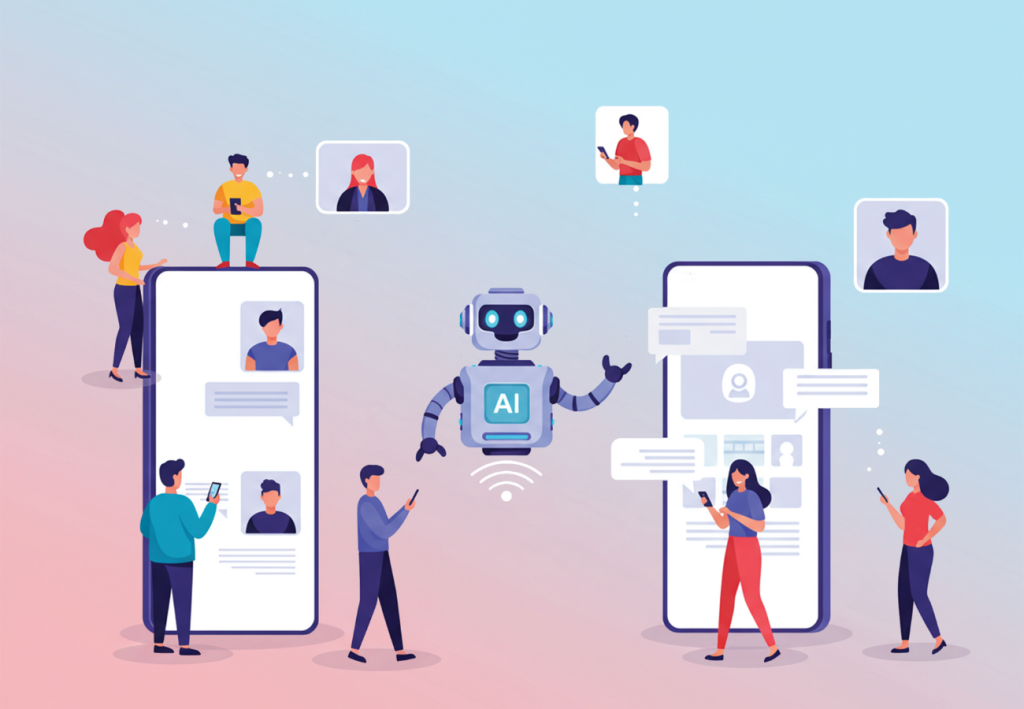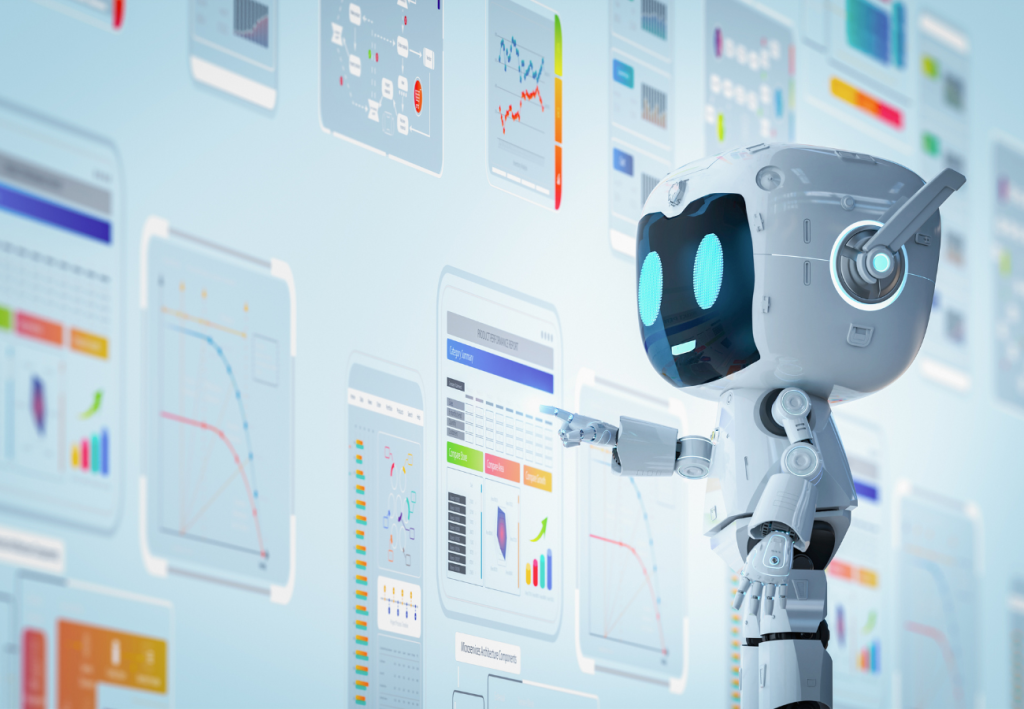The ever-so-persistent notion of artificial intelligence has changed everything now. One sure thing is that search engines will never be the same again. If your strategy over the past years has revolved around the same SEO tactics without changing anything, then this is your notice. How to Use AI for SEO in 2025, The last few years have not simply brought about changes in any algorithm – it has brought about a revolution in the ever spaced search domain.
What Is AI SEO and Why It Matters in 2025

Let’s start with the elephant in the room. Do you know those summaries generated by artificial intelligence which are now showing up at the top of Google queries? They are called ‘AI Overviews’ and one of the most surprising things is that they show up in almost 50% of all searches. The most surprising thing is that 60% of the people being accounted for are finding the answers in those summaries without having to click into any webpages. AI SEO 2025, at this point, you are probably thinking to yourself, “Okay, what does this mean for SEO?” While things are not as bleak as they appear, SEO is changing. Publishers are the ones in the most panic. The Daily Mail, for example, reported drops of 89% in traffic in some instances. The reality of the situation, however, is that traffic is not “vanishing.” It is changing. Instead of somebody clicking through the article, they are probably seeing your brand as being referenced in the AI summary. That, in the same manner, is still brand exposure, although in a different form.
AI Tools for Keyword Research and Competitor Analysis
Keyword Research Gets A Brain Upgrade
Remember when you would spend days looking for keywords manually? Not anymore. AI tools are frighteningly accurate at analyzing user intent. AI-powered SEO tools for keyword research and competitor analysis do the investigation work for you, revealing secretive tips your competitors did not want you to know.
SEMrush and Ahrefs are doing the heavy lifting – think of them as your SEO investigators (or spies). Exposing keywords your competitors rank high for, showing the ease of cracking the impossible puzzle of keyword research to tap in on opportunities you are missing out. Moz brings domain authority scores and keyword explorer, while Ubersuggest asks for minimal investment for the map of long-tail keywords.
Here’s what’s intriguing. Tools like SurferSEO and Clearscope don’t just find keywords – they analyze the top-ranking pages and guide you on semantic keywords used to sprinkle in. SpyFu acts as a spy on competitors’ paid ads and SEO moves, while AnswerThePublic shows you every question people are asking about your topic and domain.
For the technical geeks, Screaming Frog SEO Spider wriggles its way to websites like a search engine would, seizing issues you could never spot manually. These tools don’t just dump data on you – they predict trends and while guiding you what to do. Almost like having an SEO consultant working 24/7.
AI is not here to eliminate your keyword strategy; it is here to strengthen it. Leave your brain at the door, however; it is human judgment that is the true guiding light that transforms AI data into invaluable moves for SEO.
Content That AI Actually Wants to Cite
Getting AI systems to pick up and cite your content isn’t about tricking algorithms—it’s about creating material that’s genuinely useful and well-structured. Here’s the formula that works:
- Lead with a clear, direct answer.
- Make it easy to scan.
- Use schema markup.
- Be thorough.
Think of it this way: you’re not just writing for people anymore—you’re also writing for the AI systems deciding whether your content is worth citing.
The Human-AI Content Creation Dream Team
The best strategy for combining a human and AI team is when each is doing what they do best. AI deals with heavy lifting and tedium. Within minutes, AI can do: Drafts for different topics. Doing outlines for topics. Creating bulks of metadata. And anything else that is dreaded. Humans add Value in: Personal anecdotes and perspectives. Fine-tuning and verifying data. Brand sincerity. Authenticity of human touch and trust.
Link Building in the AI Era
AI link building easier by:
- Scanning millions of sites to find link prospects
- Writing personalized outreach emails
- Spotting brand mentions without links
Still, success relies on people—creating great content, building real connections, and leading your niche.
AI + SEO: The Fast Track to High-Performing Articles
AI in content creation is reshaping how SEO-friendly articles are written. Instead of spending hours brainstorming, outlining, and drafting, AI writing tools can generate well-structured, keyword-rich content in minutes. These tools analyze top-ranking pages, user intent, and search trends to suggest relevant keywords, headings, and semantic phrases that boost visibility. Beyond speed, AI ensures consistency in tone, readability, and SEO optimization—helping writers focus on creativity and strategy rather than repetitive tasks. With AI, businesses can scale content production, target long-tail keywords, and stay competitive in search results. The result? Faster publishing cycles, higher engagement, and articles designed to perform well in search engine rankings.
Final Thoughts: Should Businesses Invest in AI SEO in 2025?
The shift in search isn’t on the horizon—it’s happening right now. Businesses that will succeed are those that embrace AI and learn to work with these systems instead of resisting them.This doesn’t mean SEO is getting simpler. In fact, it’s becoming more advanced. But for those ready to adapt, the payoff is significant: becoming a recognized authority in your field, earning trust from both people and AI systems, and building long-term competitive advantages.The real question isn’t if AI will reshape your SEO strategy—it’s whether you’ll adapt before your competitors do.For organizations looking to roll out a comprehensive AI-driven SEO approach, expert guidance can make all the difference. Professional SEO teams with AI expertise can help establish authority positioning and optimize for citation frequency within your industry.
FAQ
AI is shifting SEO from keyword-focused tactics to intent-driven strategies. Search engines now rely on AI-generated summaries and contextual answers, meaning brands must create authoritative, useful content that AI systems trust enough to cite.
AI Overviews are summaries generated by Google’s AI that appear at the top of search results. They fulfill user intent directly on the search page, reducing clicks but still offering brand visibility when your content is cited.
These are new approaches to SEO where the focus shifts from ranking high for keywords to becoming the “best answer on the internet.” The goal is to create content that AI and answer engines consistently reference.
No—AI strengthens rather than replaces SEO. It accelerates keyword research, improves content creation, and reveals insights from data. However, human judgment, authenticity, and creativity remain essential for effective SEO results.

